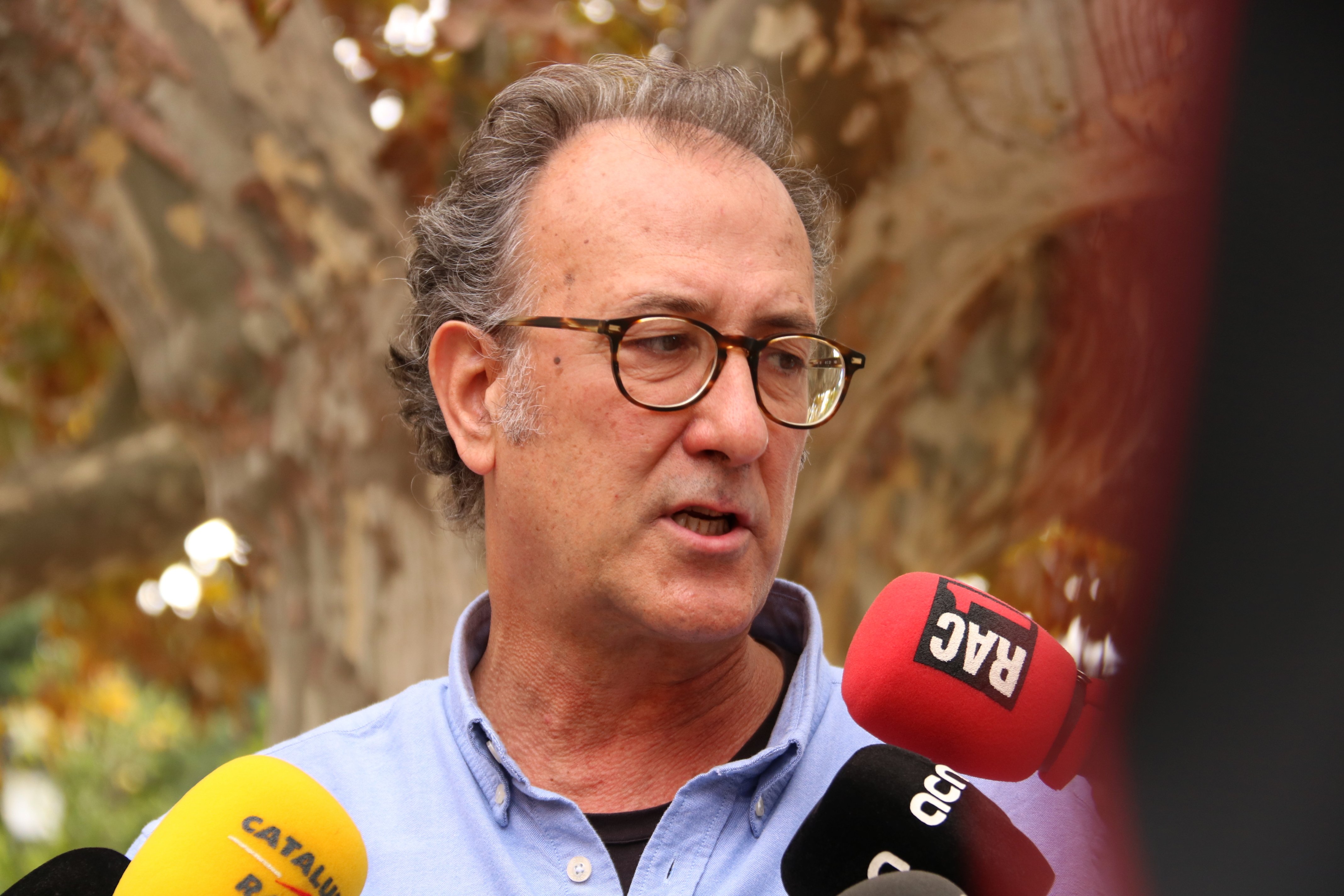The reform of Spain's sedition law, which Pedro Sánchez announced to a certain amount of fanfare on Thursday night, has struck more and more discordant notes over the course of this Friday. As the PSOE and Podemos parties registered the proposed law reform at Congress this morning, the plan to repeal the offence of sedition and substitute it for a crime of aggravated public disorder, has set off all the alarms at Òmnium Cultural, as the Catalan cultural association's president, Xavier Antich, warned. "It is a step forward in the criminalization of political dissent and in the persecution of the right to protest, not just among the independence movement but beyond, he said. At a media conference this Friday at noon in front of the Catalan Parliament, the Òmnium president added that the change makes "even easier" the ongoing violation of citizens' fundamental rights by the Spanish state. The leader of the organization also regretted that the abolition of the crime of sedition "does not respond" to the thousands of people facing retaliation by the state.
An anti-democratic crime
Antich described the law on sedition as "totally anti-democratic". "It is characteristic of an authoritarian state, which has the sole purpose of criminalizing the persecution of the right to protest. We do not consider any other response than its repeal", added Antich. For that same reason, the general secretary of Junts, Jordi Turull, demanded that the crime be repealed completely, rather than being transformed into another offence that can also be used to persecute the independence movement. Otherwise, he warned that his party will not support the measure.
The Òmnium leader reiterated that the reform of the Spanish Penal Code which has been proposed "dangerously expands" the crime of public disorder. "It worries us enormously as activists, because it incorporates the concept of intimidation. And we ask ourselves who decides when that is? The same people who decreed prison for Jordi Cuixart after he exercised the right to protest?" he asked rhetorically.
Carles Riera, CUP deputy in the Parliament of Catalonia, expressed a similar sentiment to that of the Òmnium leader, asserting that this reform will not benefit 99% of those who suffer from "repression" but only a minority and "partially". Overall, he considered that what Pedro Sánchez is doing is a new "juggling act" to please ERC, a party he has criticized for its "mutual back-patting" with the Socialists, which it is doing for "crumbs" and to get the budget passed.
How does the reform affect the Catalan political prisoners?
As Òmnium reported, there are many independence supporters who have been the brunt of judicial or police action by the state who gain nothing with this reform, while the only beneficiaries are likely to be a few of the political prisoners: those who were convicted only of the crime of sedition. That is, the only ones who might benefit are Jordi Sànchez and Jordi Cuixart, each sentenced to 9 years in prison; Joaquim Forn and Josep Rull, sentenced to 10 years and 6 months in prison, and Carme Forcadell, to 11 years and 6 months in prison. As for the exiles, the only figure with any possibility of taking advantage of the law change is Marta Rovira, general secretary of ERC, prosecuted only for the crime of sedition, and who thus may be able to return to Catalonia.

